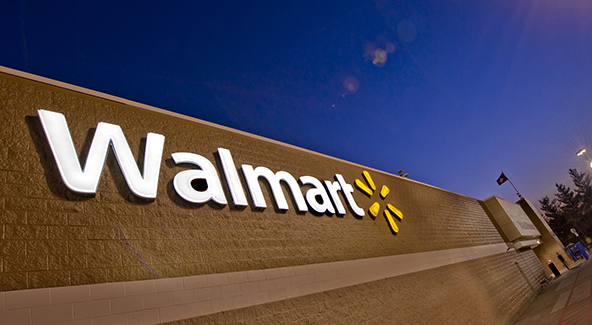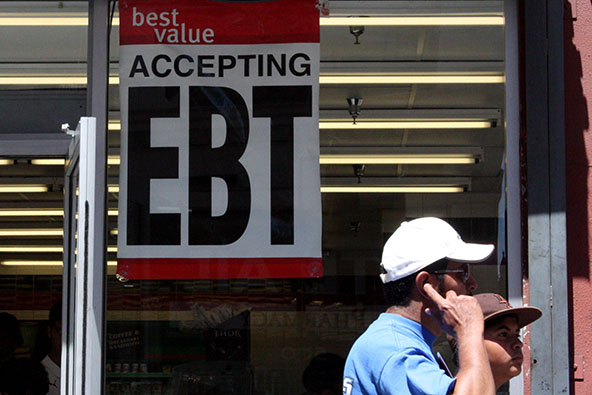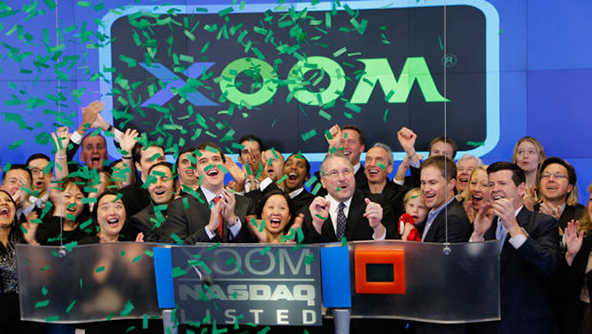Would You Sign up for a Wal-Mart Mobile Wallet?

That is not a hypothetical question. The Wall Street Journal’s Robin Sidel is reporting that the retail giant has teamed up with more than a dozen of its rivals in an effort to build a digital wallet to compete with Google Wallet and Isis. The venture is evidently at a very early stage of development — it doesn’t even have a CEO yet — but it nevertheless offers an insight into the retailers’ view of the mobile payments future.
But why would the retailers want to build their own digital wallet when there already are plenty of them around and that number is growing by the day? Don’t they have better things to do with their time and money? And, as Isis executives would tell you, this is a type of project that does require a lot of money and expertise. Well, Wal-Mart and its retail rivals-cum-partners have made the right decision. If they can implement their plan successfully, and it’s a big “if”, the merchants would create a whole new channel for communication with their customers and, crucially, will not be reliant on a third party to control the information flowing through it. That is an objective worth pursuing.
The Merchant Customer Exchange
Yes, that’s the somewhat clunky name the retailers have chosen for their digital wallet project. It is a partnership that includes 14 merchants, including Best Buy, Lowe’s, CVS, Shell, Sears, Target and Sunoco, in addition to Wal-Mart, Sidel tells us. Others are invited, says Mike Cook, corporate vice president and assistant treasurer at Wal-Mart:
We’re open to all partners, but it has to be beneficial to member merchants in a way that improves the system and doesn’t layer on additional costs.
Virtually no other details are provided. The rest of the article is filled with general statements about the current state and future of mobile payments and some statistics. So we are left to make our own conclusions and I’ll be happy to do it.
What’s in It for Wal-Mart?
There are two possible incentives for a retailer, or a group of retailers, to build their own mobile wallet: cost control and information ownership. There may be others, but these are the two that matter. By cost control I am referring to the retailers’ ability to keep their payment processing fees to a minimum. As you know, this is a big issue for them and the cause of an endless string of lawsuits against the credit card networks and issuers. However, cost control is unlikely to be the major driving force behind the digital wallet initiative in question. After all, Google has made it quite explicit that it is not interested in collecting any payment-related fees from transactions completed through its digital wallet. The search giant’s interest lies in data collection, not in payment fees. So if Wal-Mart decided to let Google Wallet into its stores, that is unlikely to lead to an increase in its payment processing costs.
But the retailers have apparently decided that they cannot allow themselves to be dependent on Google to provide them with information about their own customers’ shopping patterns. And why should they? Over the years Wal-Mart has built one of the world’s biggest and most sophisticated information management systems. The ability to crunch huge amounts of data enables the retailer to reduce costs and increase profits. It’s only natural that they, and their retail partners in this project, should want to get direct control over the mobile wallet-generated information and use it to further improve the efficiency of their operations. Having direct and unimpeded access to these data would allow the merchants to create the most complete customer profiles to date, which can then be used to improve the effectiveness of their marketing campaigns. So yes, it makes perfect sense that they would want to build their own mobile wallet.
The Takeaway
The mobile wallet space is becoming increasingly crowded and fiercely competitive, which in a way is amazing, because there are very few places where you can actually use such a payment service. Not to mention that there aren’t that many mobile wallet-ready phones around. And yet, there is little doubt that sometime very soon digital wallets will become as commonplace as their leather-bound counterparts. After all, as the huge success of Starbucks’ mobile payments service clearly demonstrates, when consumers are presented with a simple way to use their phones for payment, they quickly embrace it. So the stakes are huge and, if anything, we should expect the jostling for position to intensify.
Image credit: Walmart.com.


